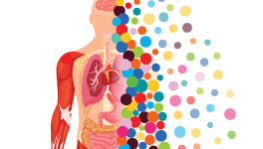
Education

Search
Saved Activities
0 Activities
0 Activities
Filter Content

Rapid Recap: A Continued Focus on CIAS
Activity Info
Schizophrenia is marked by varying levels of positive symptoms (such as hallucinations, delusions, disordered thinking, and agitation), negative symptoms (such as loss of motivation, reduced interest or pleasure in daily activities, flat affect, social withdrawal, difficulty expressing emotions, and reduced speech), and cognitive impairment. Negative symptoms are prominent in about 40% of patients with schizophrenia, while cognitive symptoms are evident in up to 80% of patients. Cognitive impairment significantly contributes to the disease burden experienced by these patients. Despite the current lack of approved treatments for cognitive impairment, it is crucial for clinicians to avoid "therapeutic nihilism." Clinicians should thoroughly assess all symptoms and consider management strategies that include cognitive remediation.
A ACCME Accredited provider.
The France Foundation ©
Chandler Building, 84 Lyme Street, Old Lyme, CT USA





